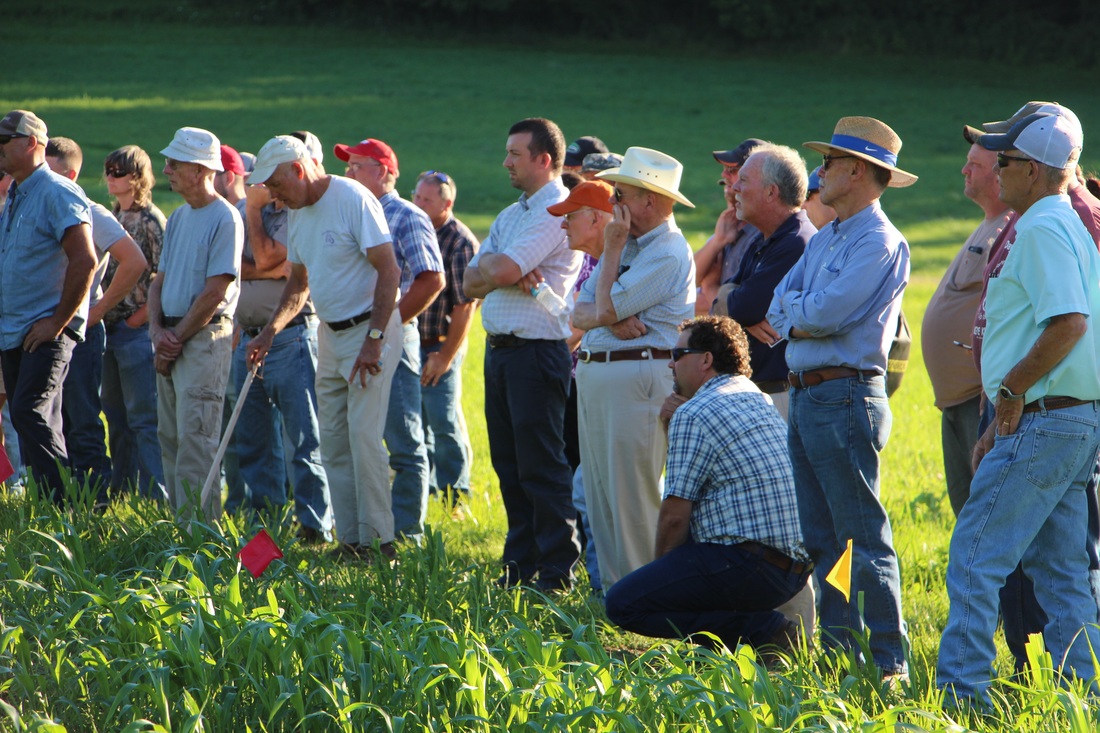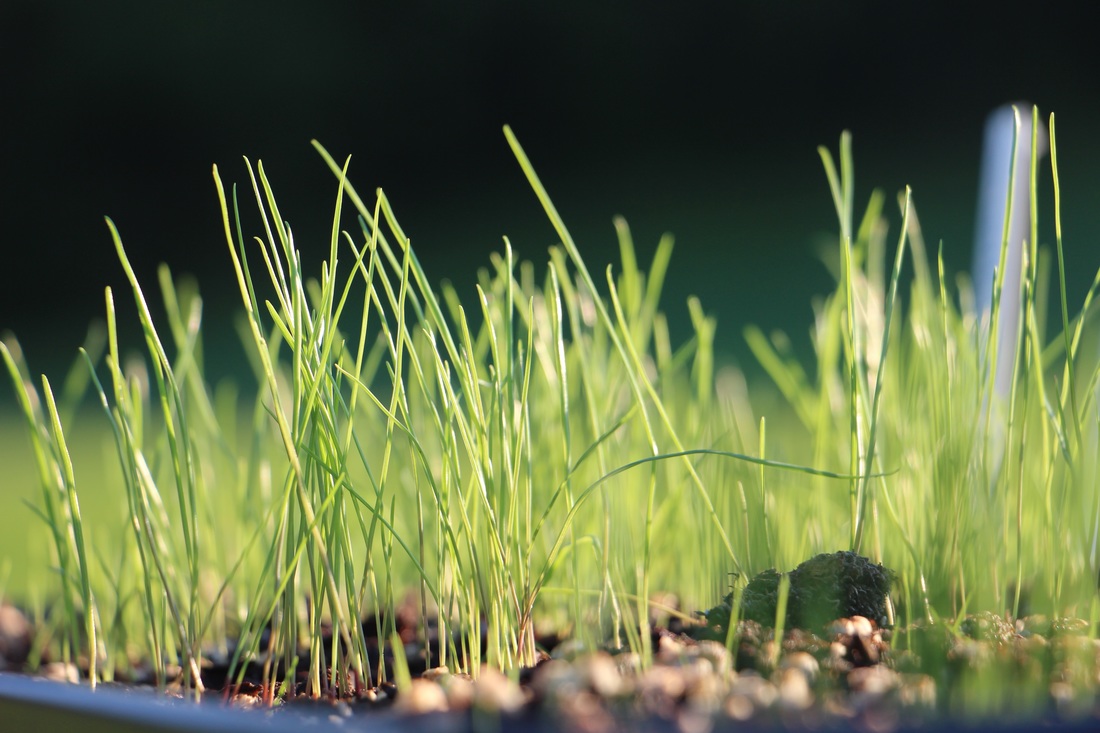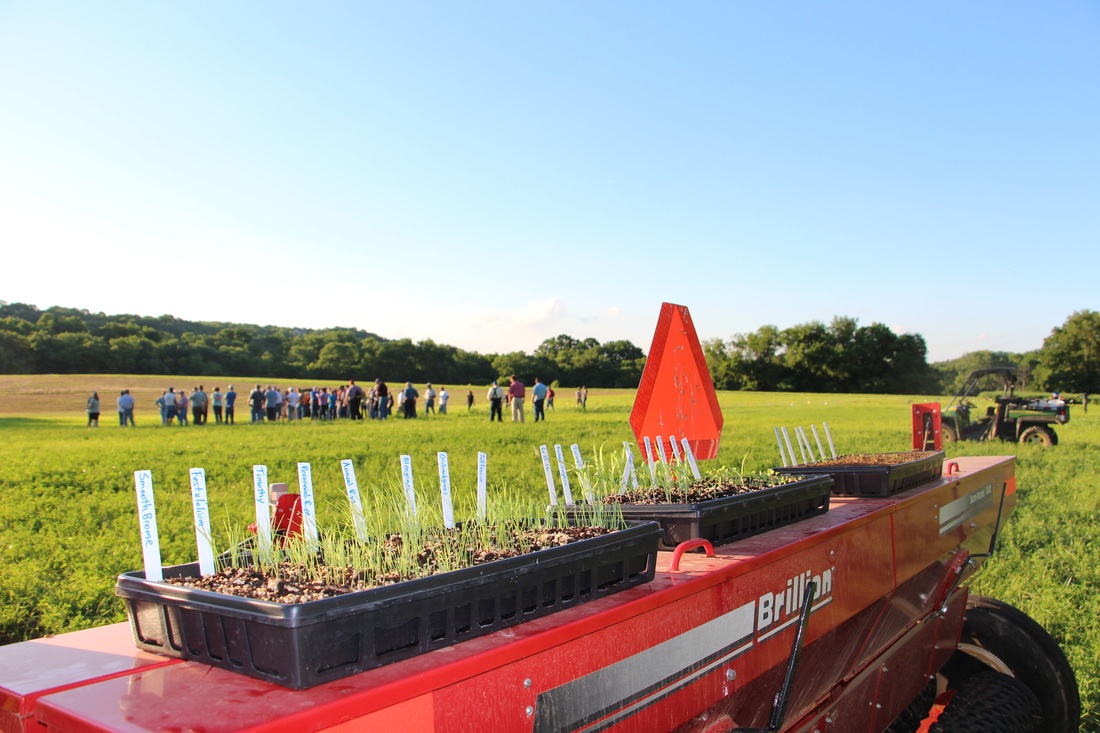|
Producers, extension agents, and specialist gathered at the Eden Shale Farm in Owenton, KY to gain knowledge about the growing industry of fescues and forages regarding how they impact the cattle industry production. For those who may not know, Eden Shale Farm was a farm managed by the University of Kentucky College of Agriculture developing research plots for pasture improvement, management, and livestock production. Due to the increase in budget cuts, Kentucky Beef Network has been overseeing the farm since 2012 through a Cooperative Agreement with UK College of Agriculture in continuation of the research and development.
The evening was kicked off with supper allowing the attendees to discuss their production, insight, and developing new relationships with other producers. After settling and getting started, two tractor-trailer straw wagons guided the attendees touring the farm with sporadic stops allowing guest speakers to shed some light on the industry and their insight. The first stop landed in a field of BarOptima Fescue of which allowed Dr.Glen Aiken, a research animal specialist with the USDA-ARS, whom spoke about grazing management regarding fescue toxicosis in cattle. Aiken advised producers to truly take into consideration the differences in cattle production between suppressed and unsuppressed seed head control and the effect it could result in regarding cattle production. He recommended suppressing fescue seedheads based off of constructed research results with cattle maintaining better body conditions, increased carrying capacity, and increase in average daily gain due to the grazing of fescue with higher protein and energy. Aiken concluded with future intentions to conduct further research in connecting cattle genetics and fescue grazing results. After further travel through the farm, Dr. Ray Smith, UK extension professor, discussed field preparation and forage establishment prior to planting. Smith recommended talking to seed dealers about what would be the best seed for your soil, testing or determining the seed germination for better growth results, and seedbed preparation whether it be tilling or round-up applications. Smith stated,” The best approach is to make sure the seed has no competition for best results.” He continued to discuss seeders, field fertility, and seed planting. “The biggest issue people have is planting the seed too deep.” said Smith. He recommended planting seeds .25-.5 inch deep with firm soil to ensure fertility, germination, and better growth results. Speaking on behalf of herbicide management at the next stop, Dr. Scott Flynn, a field scientist with Dow AgroSciences, said, “The golden goose of the industry is how can we kill the weeds but keep the clover?” Flynn gave insight on products such as PastureGard HL, Chaparral, and GrazonNext HL. With residual herbicides, such as Chaparral and GrazonNext HL, the herbicide stays in the soil and could affect the seedlings and germination making it key to become more aware with the type of herbicide applied.Whether it be residual vs non residual herbicides, warm weather vs cool weather plants, or even prior vs post planting application(s), investing the time, management, and financials into the pastures is just as beneficial to the cattle production as anything else. “When it comes to our pastures, weed control is the best investment you can make for production.” recommended Flynn. Kade Haas with BarenBrug, lastly discussed forage selection and the variety of forages that may or may not be best for your pastures. He shared insight to the research that has been conducted regarding the more recent common pasture issues such as; red clover, buttercup, etc. As an optional opportunity, attendees were welcomed to stay for further discussion regarding spray equipment and proper planting demonstrations to educate those whom wish to improve their management and production practices. Overall the event was an educational success. Comments are closed.
|
Archives
June 2024
Categories
All
Welcome |
CONTACT US |
EMAIL SIGN UP |
|
Eden Shale Farm
245 Eden Shale Rd. Office: (859) 278-0899 Owenton, KY 40359 Fax: (859) 260-2060 © 2021 Kentucky Beef Network, LLC.. All rights reserved.
|
Receive our blog updates
|




 RSS Feed
RSS Feed
